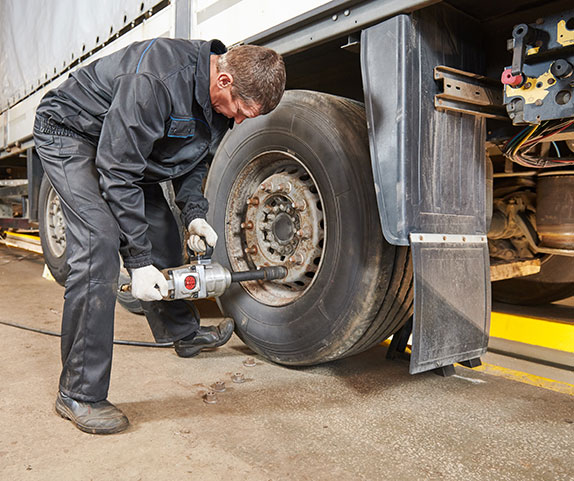Raise Your Experience: Trust Morris Tires for GMC Tires Service
Raise Your Experience: Trust Morris Tires for GMC Tires Service
Blog Article
Tire Service: The Impact of Climate Conditions
When it involves guaranteeing optimal performance and security on the road, recognizing the effect of weather on tire service is crucial. From scorching warm to icy roads, each weather condition component can dramatically influence tire capability and total driving experience. By delving into the impacts of differing weather on tires, drivers can get beneficial understandings that may enhance their automobile's performance and long life. In this conversation, we will certainly check out the detailed partnership in between weather and tire service, clarifying the value of weather-specific tire upkeep practices and considerations.
Warmth and Tire Performance
When subjected to high temperatures, tires experience modifications in efficiency that can considerably influence automobile safety and security and handling. The warm generated from prolonged driving or warm climate problems triggers the tire rubber to soften, leading to lowered tread life and boosted wear.

Winter Impacts
Winter conditions can have a substantial effect on tire performance and security. As temperature levels drop, tire rubber can solidify, causing lowered traction on icy or snow-covered roadways. In chilly weather condition, tires might also shed atmospheric pressure a lot more swiftly, which can influence taking care of and fuel effectiveness. In addition, cold temperature levels can create tire sidewalls to stiffen, increasing the threat of damage from potholes or various other road hazards.
To alleviate the impacts of winter on tires, it is crucial to on a regular basis check tire stress and inflate them to the supplier's advised levels. Using winter or all-season tires created for cool weather conditions can also improve traction and grip on icy or snowy roadways. Correct tire maintenance, consisting of regular evaluations for wear and damage, ends up being much more critical during chillier months to make certain ideal performance and safety and security.
Rainy Conditions Impact
During rainy problems, tire performance and safety can be considerably influenced by the wet roadway surfaces and reduced exposure. The step pattern of tires plays an important role in preserving grip on damp roadways. Tires with worn-out treads are extra vulnerable to hydroplaning, where a layer of water constructs up between the roadway and the tire surface, leading to loss of grip. To battle this, chauffeurs should routinely inspect their tires for adequate step depth and consider purchasing tires specifically created for damp conditions.
In addition, wet weather can likewise lower presence, making it testing for vehicle drivers to see the road in advance plainly (GMC Tire our website Service). In such conditions, it is vital to change driving speeds as necessary and maintain a secure following range to enable abrupt quits. Effectively inflated tires can also help in maintaining control on wet roads by providing far better handling and grip
Snow and Tire Security
Snow-covered roads position one-of-a-kind obstacles for chauffeurs, stressing the relevance of proper tire selection and maintenance. When driving in snowy conditions, having the best tires can make a significant difference in security and performance. Winter season tires are created with special rubber substances and tread patterns to provide far better grip on snow and ice contrasted to all-season tires. The deeper footsteps and sipes of winter tires aid grasp the road much better, lowering the risk of sliding and slipping.

Furthermore, chauffeurs must consider installing tire chains in extreme snowy problems. Tire chains offer extra grip by gripping the snow and ice, boosting security and control. It is vital to comply with maker instructions when mounting and using tire chains to prevent damages to the tires and vehicle (GMC Tire Service). By selecting the right tires, maintaining correct inflation, and taking into consideration added grip help like tire chains, vehicle drivers can boost their safety and security when navigating snow-covered roads.
Weather-Related Tire Maintenance
Weather-related tire upkeep incorporates a variety of techniques aimed at making certain optimal tire feature and durability in various weather scenarios. One vital aspect of weather-related tire maintenance is tire stress policy. Checking tire step frequently and replacing tires when step wear gets to a certain depth is important for keeping traction and security in adverse weather condition.
Final Thought
In conclusion, weather condition problems have a substantial effect on tire performance and safety. From warm affecting tire pressure and put on to cool climate decreasing grip, it is essential to think about the weather when maintaining and utilizing tires.
In this conversation, we will certainly discover the detailed relationship in between climate conditions and tire service, dropping light on the relevance of weather-specific tire upkeep practices and considerations.

Report this page